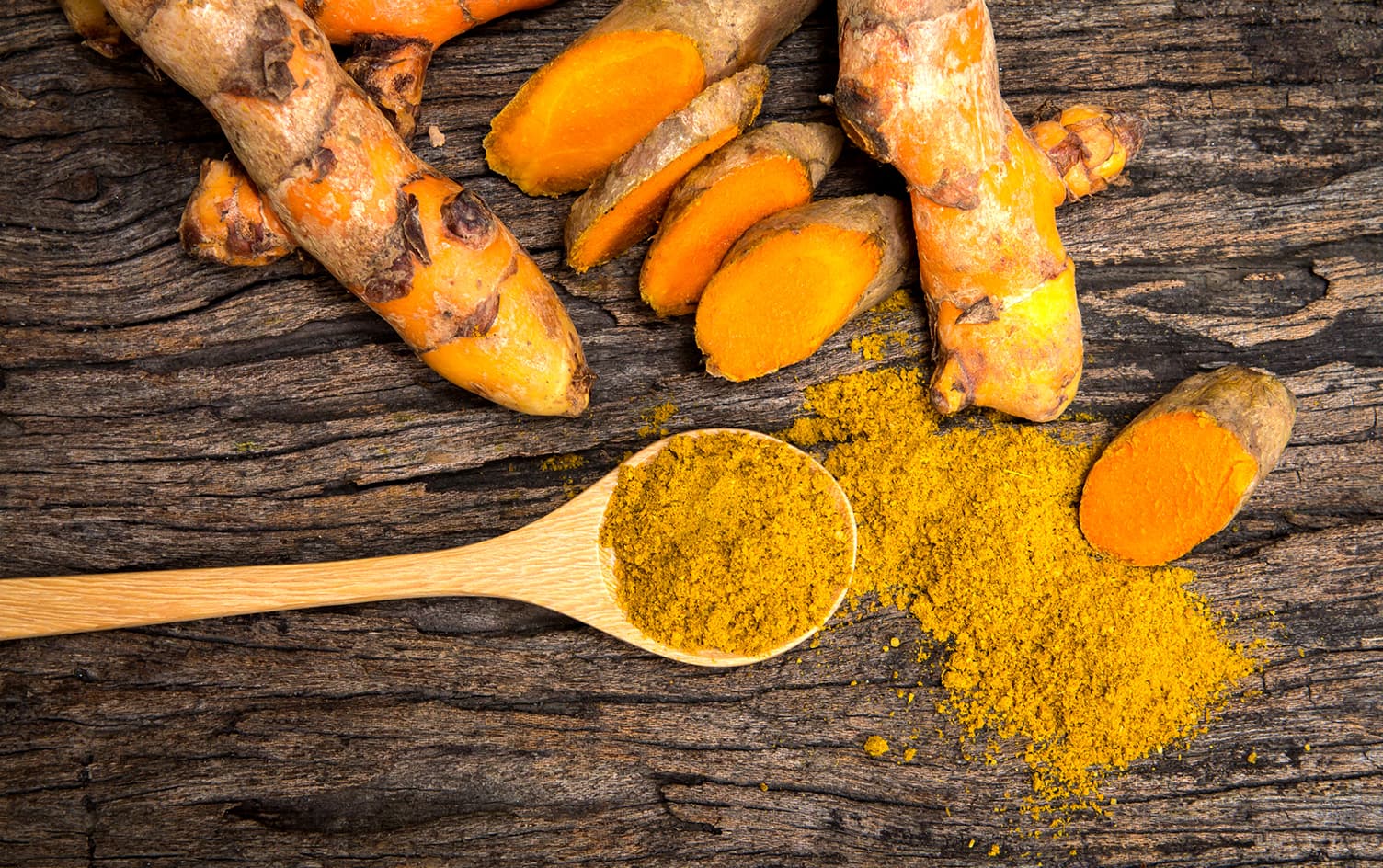Turmeric seems to be popping up everywhere these days — and not just in your curry. Google singled out this spice as “the top trending functional food” in its 2016 Food Trends report, with a 56% search growth in three short months from November 2015 to January 2016!
This yellow spice has been used for thousand of years as a cooking additive, component in religious ceremonies and natural remedy. Today, turmeric is highly sought after as a “functional food” meaning it has benefits beyond basic nutrition. The main active compound in turmeric, curcumin, is believed to contain strong protective properties, namely anti-inflammatory and antioxidative.
For these reasons, consumers are actively finding innovative ways to add turmeric into their diet and lifestyle. From treating inflammation and depression to heart disease and gum disease, is turmeric really a panacea or simply a trend destined to become passé? We looked at science for answers.
3 Science-Based Benefits of Turmeric
Turmeric research is limited. But, as the trendiest spice on the market today, you can bet more studies on this golden root will be conducted in the near future. Here are three claims that do have their roots in science.
1. Reduces chronic inflammation.
Inflammation plays an important role in the body, but when it goes on for too long, it can do more harm than good. Acute (short-term) inflammation protects the body against foreign substances (invading bacteria, viruses or chemicals to name a few). Chronic (long-term) inflammation inappropriately attacks the body’s own tissues and typically stems from lifestyle choices, such as a poor diet or smoking. It has been linked to many major diseases including weight gain, metabolic syndrome, heart disease and cancer.
Curcumin fights chronic inflammation by inhibiting molecules that turn on your body’s inflammatory response. Effectively attenuating the symptoms of autoimmune diseases from psoriasis to gingivitis, curcumin’s anti-inflammatory properties have even been shown to be on par with some anti-inflammatory drugs.
2. Stimulates antioxidative effects.
Curcumin is a powerful antioxidant that also stimulates your body to make its own antioxidant enzymes. Why is this important? Antioxidants help neutralize free radicals which are naturally produced as a byproduct of metabolism. If this doesn’t happen free radicals can damage cells and genetic material, contributing to chronic diseases such as cancer and heart disease. In a study of 40 subjects with mild-to-moderate osteoarthritis, researchers found curcumin to relieve osteoarthritic symptoms by mitigating the effects of oxidative stress.
3. Relieves symptoms of anxiety and depression. Studies on anxiety and depression (here and here) suggest that curcumin may be beneficial in relieving anxiety and reversing the development of depression. Due to small sample sizes, more extensive research is necessary before conclusions can be made.
3 Notable Concerns About Turmeric
Before you splurge on a bottle of curcurmin supplements, know that turmeric isn’t magic! While it does offer a few health benefits, consider these three things before you jump on the bandwagon:
1. Interactions with other meds. Turmeric can lower blood sugar, increase stomach acid production and cause additional thinning of the blood. Thus, anyone taking medication for diabetes, stomach acid reduction or blood thinning should avoid consuming turmeric. If any of these criteria apply to you, check with a healthcare professional to see whether turmeric is right for you.
2. Dosage versus effectiveness. Pure turmeric powder only contains about 3% curcumin by weight. Most studies on curcumin mainly contain high doses of curcumin itself rather than turmeric powder; it would be difficult to reach the same dosage with food consumption alone. Thus, to achieve similar results, it is important to note curcumin intake in studies.
3. Poor absorption. Curcumin has relatively low bioavailability meaning it’s poorly absorbed in the body. One study has found that consuming curcurmin with piperine, the main active compound in black pepper, increases its bioavailability by 2,000%. As impressive as that sounds, we must interpret this carefully since the study wasn’t done in humans.
The Takeaway
Despite studies citing the promising effectiveness of turmeric, more research is needed to confirm the optimal dosage, bioavailability and efficacy of curcumin-based drugs. Until then, with little to no side effects, it doesn’t hurt to add this powerful spice into your diet! Pesky inflammation still bothering you? Check out these six foods that fight inflammation.
BONUS: 2 Turmeric-Infused Recipes to Spice Up Your Diet
Turmeric Latte (Golden Milk) | Heavenlynn Healthy
Skip the coffee, and grab this fragrant turmeric latte instead. Warm, earthy and spicy, this soothing drink can make a bad day go away. And, it takes three minutes to whip up! Recipe makes 2 servings.
Nutrition (per serving): Calories: 54; Total Fat: 3g; Saturated Fat: 0g; Monounsaturated Fat: 2g; Cholesterol: 0mg; Sodium: 161mg; Carbohydrate: 5g; Dietary Fiber: 1g; Sugar: 3g; Protein: 1g
Cauliflower Steaks with Ginger, Turmeric and Cumin | The Kitchn
This 20-minute recipe roasts large slabs of cauliflower with ginger, turmeric and cumin for a dish that’s fancy enough for a party and simple enough for an everyday dinner. Recipes makes 3 servings at 1/3 head cauliflower each.
Nutrition (per serving): Calories: 165; Total Fat: 11g; Saturated Fat: 1g; Monounsaturated Fat: 7g; Cholesterol: 0mg; Sodium: 87mg; Carbohydrate: 12g; Dietary Fiber: 0g; Sugar: 6g; Protein: 5g




